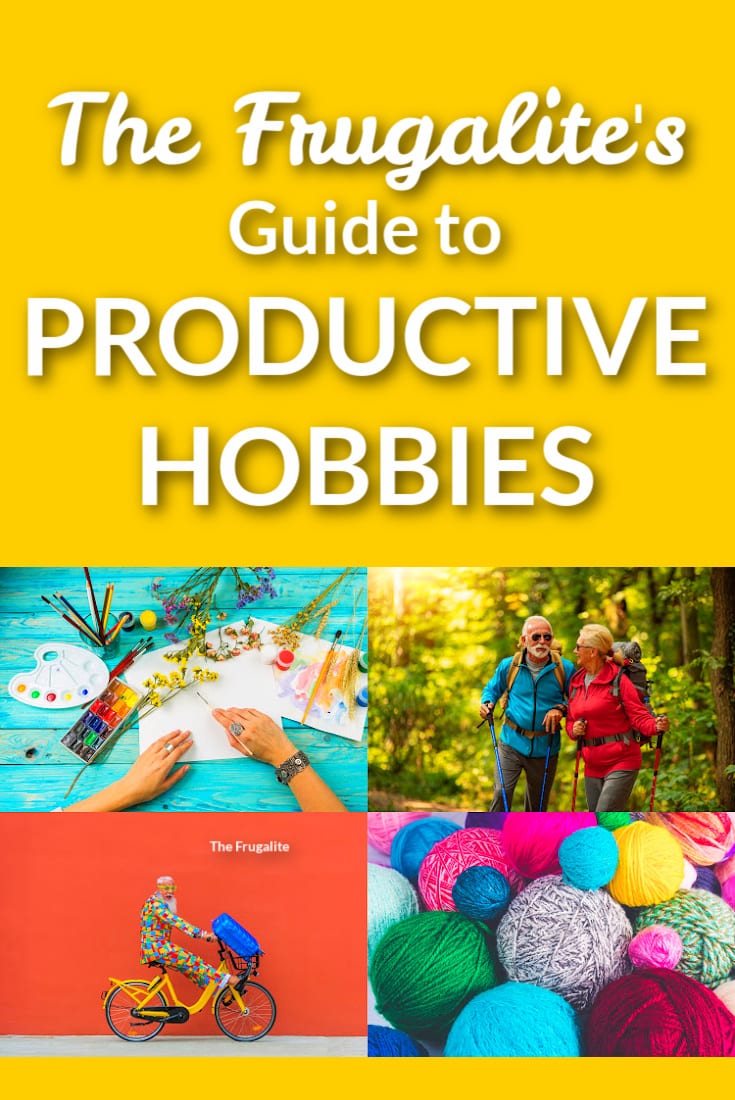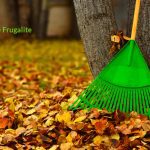(Psst: The FTC wants me to remind you that this website contains affiliate links. That means if you make a purchase from a link you click on, I might receive a small commission. This does not increase the price you’ll pay for that item nor does it decrease the awesomeness of the item. ~ Daisy)
by the author of The Ultimate Guide to Frugal Living and The Flat Broke Cookbook
There’s no denying that for many of us, times are tight. Many homes have a basket by the door full of unopened bills. Bank accounts are in overdraft. Every week the charges at the grocery store are a little bit higher than the week before, and for less food. Kids want new clothes and that latest video game, the car needs to be fixed, and people’s jobs are draining the very life from them.
It is vital to take time out of the day to relax. It rejuvenates you, improves your health, and calms your mind so that you can think more clearly. Relaxation, creative activities, and family time can actually be frugal endeavors and not distractions that take away from your efforts to make ends meet.
It can also support your mental health to have productive, enjoyable hobbies during stressful times.
When you have a million and one things to do, though, sometimes it’s difficult to force yourself to stop. This is because stress releases two hormones into your body: adrenaline and cortisol. Excesses of these hormones can cause blood pressure spikes, food cravings that lead to weight gain, and heart disease, to name just a few of the pitfalls.
So, you’ve got to unwind. You need a hobby.
But not these hobbies.
But beware. Some hobbies end up costing you money with nothing to show for it. Lots of people spend their time doing things like playing golf or tennis, going to concerts or night clubs, playing pool in a bar, drinking alcohol with friends, or shopping. All of these things have their place, of course, but as a regular part of your daily routine, they can certainly add up in price. If you already stressed about your finances, these hobbies will give you a brief respite, but in the end, just cause your stress to be worse because of all of the money you’ve spent.
Other hobbies kill off a few brain cells as you sit there, passively entertained in an altered state in front of the television or a video game. These things may not really cost you a lot of money, but in the long run, will do little to alleviate stress.
Studies have shown that watching television induces low alpha waves in the human brain. Alpha waves are brainwaves between 8 to 12 HZ. and are commonly associated with … brain states associated with suggestibility…Too much time spent in the low Alpha wave state caused by TV can cause unfocused daydreaming and inability to concentrate….Advertisers have known about this for a long time and they know how to take advantage of this passive, suggestible, brain state of the TV viewer. There is no need for an advertiser to use subliminal messages. The brain is already in a receptive state, ready to absorb suggestions, within just a few seconds of the television being turned on. All advertisers have to do is flash a brand across the screen, and then attempt to make the viewer associate the product with something positive. (source)
Passivity actually opens up the door to your brain and allows you to be programmed – it becomes easier to convince you that you need these things that are being advertised. It inhibits your critical thinking skills and leaves your brain craving even more time in this low Alpha state. This is the reason that some people sit blankly in front of the TV for hours every night until they fall asleep on the couch and then get up to do it all over again.
It’s important to choose your spare time activities in a manner that enhances your brain function, instead of reducing it. In a world where, for many, entertainment means playing on your iPhone or sharing photos on Facebook, opting for industry for your downtime can be an unusual choice. But, choosing productive hobbies is a great way to relax. What’s more, if your brain is engaged in an activity while you view a television program or movie, then you are not as susceptible to messages, either subliminal or blatant. This means that you don’t actually have to keep the TV turned off at night – you just need to refrain from zoning out in front of it.
Now, I can’t say that I never indulge in a little bit of binge-watching. I do, on a regular basis. The difference is, I don’t just sit there. (Actually, I’m pretty much incapable of simply sitting there watching something.) I take the time that we spend watching a show to accomplish those mindless things that I just don’t enjoy doing, like mending, organizing my sewing basket, repairing broken items, or completing a frenzy of food prep.
A brief lesson from young Ben Franklin
In 1726, 20-year-old Benjamin Franklin sought to cultivate his character. He listed off the thirteen virtues that he believed were important to living a good life, one of which was industry.
Franklin wrote of this characteristic,
“Industry: Lose no time; be always employed in something useful; cut off all unnecessary actions.”
He believed that the pursuit of productivity would build character and help the practitioner to lead a more successful and moral life. In his autobiography, Franklin wrote, “I hope, therefore, that some of my descendants may follow the example and reap the benefit.”
Think back to the days before television. People worked hard all day long, producing food, cutting wood, cooking, hunting, building…it was a full-time job to survive and thrive. In the evenings, by candlelight, they could stop and put their feet up for a while. Books were not widely available like they are now, so families passed the time by performing stitchery, carving, making furniture, mending things and creating items that made their lives more pleasant and beautiful. Sometimes a family member would read aloud, play an instrument or sing. Time was of value and not to be wasted, and there was rarely money to spare on an “evening out”.
Opt for activities that enhance your frugality
Nearly 300 years later, we can apply Franklin’s philosophy of industriousness and productivity to our lives today. When choosing leisure activities, consider opting for a productive hobby.
It should either…
- Teach something
- Create something
- Repair something
- Improve something
That leaves the door wide open to a broad range of choices. If you tend to be an overachiever, then you can relax without the guilt of worrying about all the things that you “should” be doing instead of chilling out. As a longtime student of cheapskatery, I’ve found that most people who are effectively frugal have hobbies that are productive and don’t enjoy wasting time, even leisure time.
Sometimes your hobby can even turn into an additional source of income. Many people have been extremely successful in setting up starting their own Etsy empires or participating in the craft show circuit
.
Some productive hobbies to choose from…
Not only can some of these hobbies be an enjoyable way to pass the time or add to your economic bottom line, but they can provide beautiful, lower-cost options for gift-giving, which is a frugal bonus.
Not only should you, yourself, be indulging in these pastimes, but you should be passing these skills on to your children. When you do, you are creating not only useful and lovely items but irreplaceable family memories. Our living room was always filled with pretty baskets which all hid the supplies for various crafts and hobbies. Of an evening, you could most often find us creating while a movie or music plays in the background.
- Reading
- Sewing clothing, curtains, and soft furnishings
- Knitting, crocheting, and weaving
- Carving
- Repairing broken items
- Mending
- Making soap and other personal care items
- Building furniture
- Making pottery
- Cooking
- Baking
- Writing
- Drawing and creating art
- Playing an instrument
- Singing
- Making cards
- Making jewelry
- Fletching
- Gunsmithing
- Making ammo
- Welding and soldering
- Learning a language
- Caring for animals
- Playing a word, math, or strategy game
- Marksmanship (archery and firearms)
- Exercise
- Gardening
- Preserving food
- Practicing outdoor skills like hiking, camping, tracking, and foraging
- Hunting
- Fishing
- Automotive repair
- Scrapbooking
- Embroidering or cross-stitching
- Upcycling old things into new, useful ones
- Crafting greeting cards
- Refinishing furniture
- Puzzles
- Playing games with the kids (this can be educational and fun at the same time)
- Bicycling
What are your productive hobbies?
This list is certainly not comprehensive. If I’ve left off your favorite spare time activity, take a couple of minutes to tell us about it in the comments section. How do you unwind? What do you like to do in your spare time?
About Daisy
Daisy Luther is a coffee-swigging, adventure-seeking, globe-trotting blogger. She is the founder and publisher of three websites. 1) The Organic Prepper, which is about current events, preparedness, self-reliance, and the pursuit of liberty; 2) The Frugalite, a website with thrifty tips and solutions to help people get a handle on their personal finances without feeling deprived; and 3) PreppersDailyNews.com, an aggregate site where you can find links to all the most important news for those who wish to be prepared. Her work is widely republished across alternative media and she has appeared in many interviews.
Daisy is the best-selling author of 5 traditionally published books, 12 self-published books, and runs a small digital publishing company with PDF guides, printables, and courses at SelfRelianceand Survival.com You can find her on Facebook, Pinterest, Gab, MeWe, Parler, Instagram, and Twitter.












9 thoughts on “The Frugalite’s Guide to Productive Hobbies”
under marksmanship include a sling shot, it can be a life saver when food is short. Bird watching and learning about local edible plants then teaching what you learned to others.
Great tip!
I enjoy 28 of the 40 listed. I also practice with a slingshot and crossbow. I paint oils, watercolors, and draw. I read books on foraging wild foods and wild medicines… and really do that stuff. I make baskets. I make a lot of my clothing and make patterns from drawings and pictures. I knit sweaters, hats, and scarves as sets for family and friends. Almost anything creative makes me happy. I also love teaching and helping others. I’ve also made the plans for a lot of my building projects from chicken coops, a commercial construction porohect, and figuring out my soon to be started solar power project and the room for all that set of batteries, controllers ect. I also love gardening from planning, doing, harvesting and preserving the harvest. Im repairing a bicycle for tips to the Post Office and im restoring a treadle sewing machine from mechanical adjustments to repairing broken woodwork. I repair free or inexpensive sewing machines to give away. My neighbor gives free sewing lessons. Its a fun combined effort.
At 74 life is still interesting and productive. I’m still courios and learning. It isn’t to compete so much as I enjoy doing. I don’t like giving up on anything. I’ll keep at it until it’s done or my not so young body stops me and that’s rare. I don’t do roof tops anymore if I can avoid it. But I’ll still build shed and roof it.
Ok gotta look up fletching. I also indulge heavily in cheapskate crafting. A ball of jute twine and a few packs of paint sticks can keep me busy for days on end.
Btw careful it means something entirely different to some folks! ?
Had to look that one up – I’ll just ignore the “urban” definition
I’ve always been intrigued when someone says their hobby is shopping. Personally, I don’t like shopping. I just want to get in and out of a conventional store. On the other hand, shopping at a thrift store or yard sale (only when I pass by going somewhere else) I do find fun, like a treasure hunt, because I’m always on the lookout for items that I can use – repairable, adaptable for other uses, unwanted plants or gardening supplies, books, games, puzzles. Lots of times it is hobby supplies someone tried and found too hard or time consuming. I look for things I can use in my life to make it more pleasurable.
I like to make wine in my spare time – saves me a fraction from buying it in the store and I could always barter with it.
Since many of the activities that I’ve done over the decades have already been mentioned above … I just want to mention a few others that might also be of interest.
I grew up on a farm where the house had been built about 1900. It had been very small and was only enlarged when the owner could finally afford it. Decades later when my father bought it almost all of his tools were non-electric even though rural electrification had finally arrived. So when I came along only after WWII had ended and grew up enough to start learning how to use woodworking tools they were still all non-electric. Many years later during my undergraduate summers … one of them was spent working in a machine shop cutting out aircraft and missile parts from steel sand castings. That was an eye opener in learning how to use a micrometer and related tools (which I still have) to 1/1000 inches of accuracy. Then much later after putting four years of aircraft maintenance in the USAF behind me I stumbled across an estate sale deal for a late 1940s cast iron Shopsmith for woodworking. That was the beginning of my collection of add-on tool attachments for that Shopsmith system … which I still have and use.
Another learning opportunity I discovered was genealogy. There’s an expression in that world that says “a genealogist will take your family history as far back as your money will go.” I learned how to bypass that minefield when I discovered that the family history of one branch of my ancestors had already been done and that for very little cost I could get access — which I did. I learned that one Polish ancestor had escaped POW status in Sweden’s Great Northern War … and made it to New Jersey by 1704. He became a trader of furs with the Indians southwest of the Great Lakes at a time when France held that territory and would have executed any traders they caught with ties to England. Interestingly his surname (applied to a bay north of what today is Sandusky, Ohio) appears on a 1718 map created by the royal French map-maker D’Lisle who used a French-ified spelling of my ancestor’s Polish surname). My ancestor also became a translator when the governor of Pennsylvania needed to converse with the Indians. Much later all of his grandsons fought in the American Revolution on our side. One of them was captured when Charleston fell to the British. That grandson was then imprisoned on a British prison ship in New York where most prisoners including him died from ghastly treatment. Decades later one of his brothers was captured by the British in the War of 1812 and held at Fort Detroit. When finally released he traveled through what today is Illinois and told his people what a beautiful region that was. So that’s how his people eventually traveled to Illinois by covered wagon. Their descendants lived there until the late 1800s when they moved farther west to the state where my grandparents grew up.
That learning experience took hold for me so I spent much effort in trying to duplicate that learning for other branches of my people. Such family history records make a great gift for future generations.
A somewhat related interest of mine is digging out hidden parts of American history that thoroughly dishonest politicians have gone to great length to conceal. Whether about Lincoln’s attempts to deport blacks both during and after the unCivil War, or McKinley’s lying to Congress about Spain’s serious efforts to avoid war with the US, or Woodrow Wilson’s murderous strategy to maximize the number of Americans who would be killed when Germany would torpedo the passenger liner Lusitania (carrying internationally prohibited munitions) in 1915, to the Rockefeller meningitis vaccine sold to the US army first in 1917 (but only administered in 1918) at Fort Riley, Kansas (where a long gone uncle of mine was stationed and in training for WWI, but recovered from that vax) that began sickening GIs immediately. That didn’t stop the Rockefellers from selling much more of that vaccine … to several foreign countries many of which were at war. Because of wartime censorship the first newspapers to cover the illness and deaths were in peace-time Spain. So that gave the thoroughly dishonest Woodrow Wilson the opportunity to falsely label the Rockefellers’ death dealing illness as the mysterious “Spanish Flu” of unknown origin. Never mind that estimates of deaths worldwide ranged from 50 to 100 million people … including more German soldiers than from combat. That monstrous lie has been continued to this present day. Is it any surprise that the Covid-19 plandemic has been a monstrous bucket of lies from day one?
I could go on but this is not the place for a book.
–Lewis